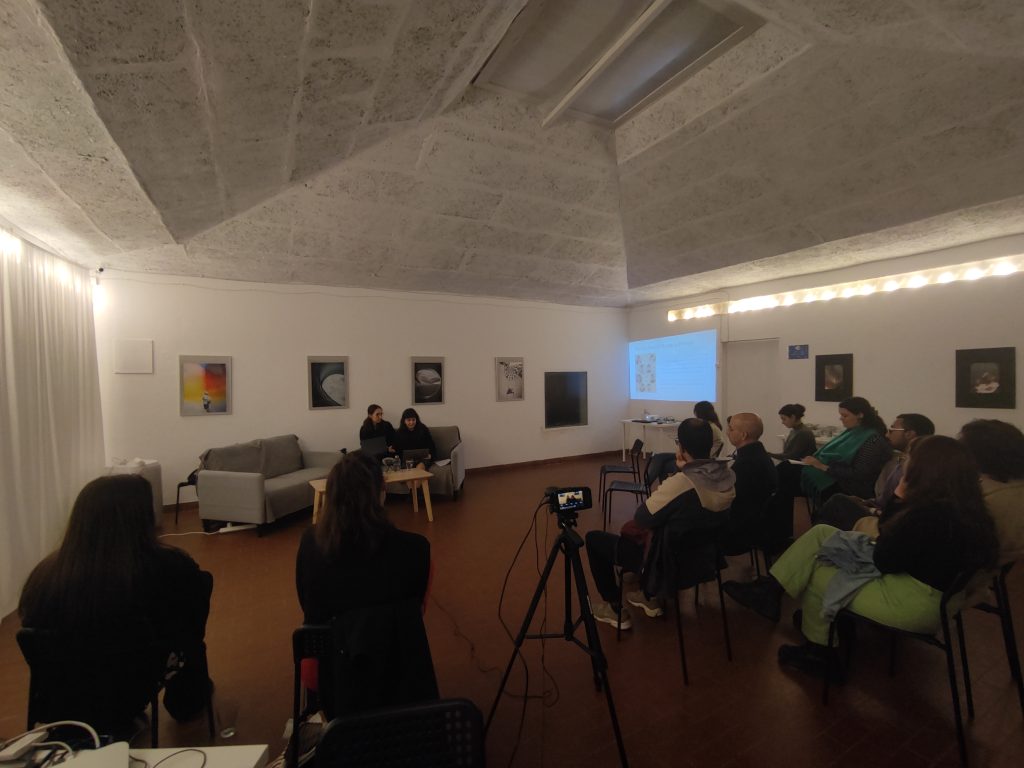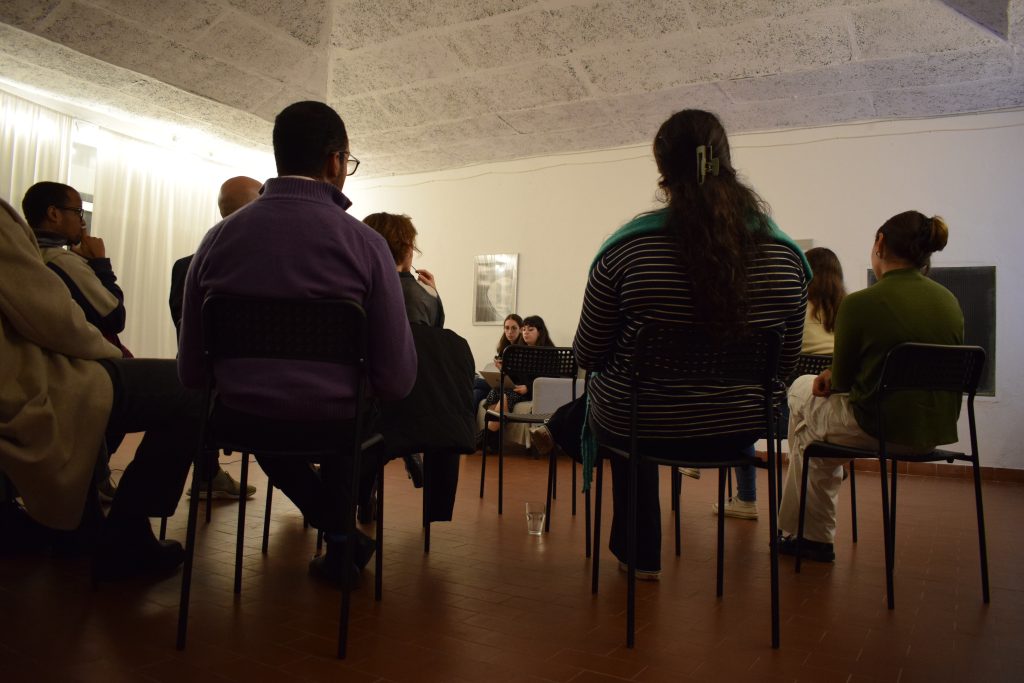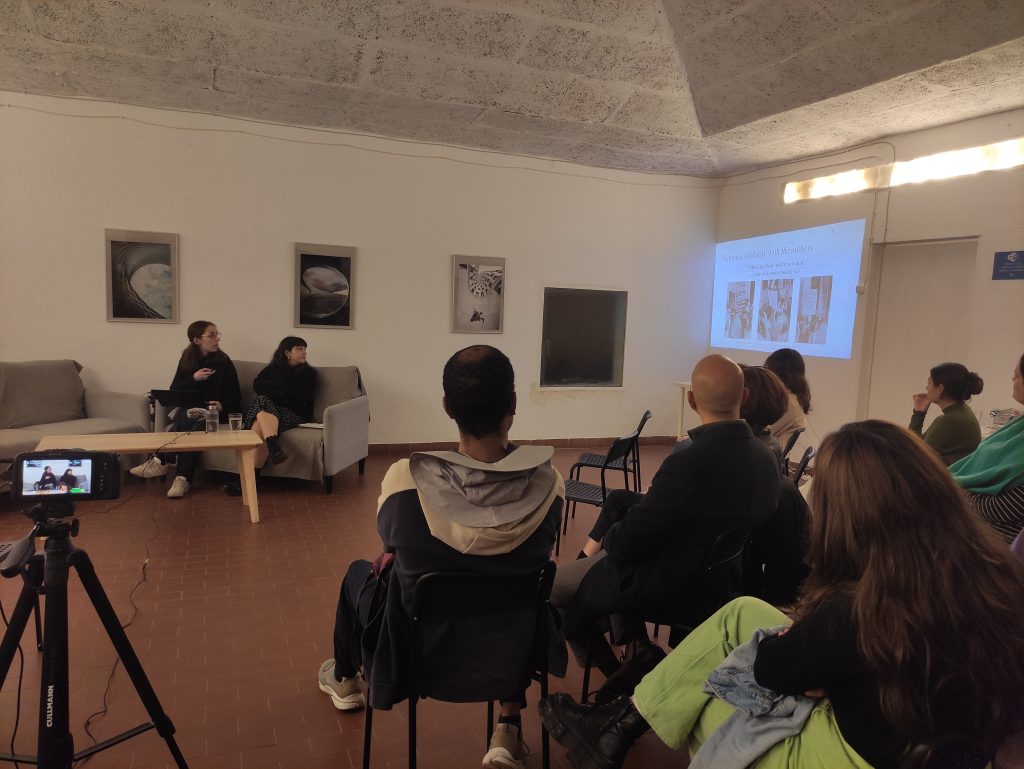Women’s Solidarity Networks
Overview
SolRem’s memory forums aim to educate and raise awareness about the history of resistance and solidarity against right-wing authoritarianism and dictatorships. This memory forum focused on solidarity networks created by women to support each other during the times of Estado Novo, and also on the reality of today’s society. The different approaches created the opportunity to establish a bridge between the historical perspective and the current reality of women’s struggles and challenges throughout the times.
The event took place in Centro de Inovação Social, in Olivais, Lisbon, on the 29th of November 2023. It aimed to fulfill the purpose of preserving the memory of Women’s Solidarity Networks, by honoring the women who fought for the lives of so many others in the time of the Portuguese dictatorship, by providing a space for researchers in the field to contribute with more insights about the topic. Besides this, the more current approach of solidarity networks based on community-based work provides knowledge about how men interact with struggles associated with the patriarchal society we all live in today.

There were 16 people in the audience engaging in the discussion and debate of the topic of Women’s Solidarity Networks, followed by 10 people in the online meeting streaming the session.
Agenda
| 29th November 2023 – 17:30-20:30 |
| Opening of the Memory Forum on Women’s Solidarity Networks in Portugal: Félix Soares, President of Young Educators |
| Women’s solidarity networks from a historical perspective: Catarina Veiga dos Santos and Joana Ralão (Researchers from the Feminine Resistance network at FCSH-UNL) |
| Women’s solidarity networks today: David Almeida (President of HeForShe Lisbon) |
Contributions
Women’s Solidarity Networks from a historical perspective
Under the topic of Women’s Solidarity Networks, our guests Catarina and Joana walked us through the journey of women who were actively fighting for their rights in a time of severe oppression, which was the Estado Novo regime in Portugal. The dictatorship reduced women to staying home taking care of their husbands and children, entirely disregarding the working women.
It is within this context that some notable women decided to fight for their rights to be seen as equals, which is where there is the creation of associations such as the National Council of Portuguese Women, the Women’s Association for Peace, the Women’s Democratic Movement, and the Women’s Liberation Movements. These movements occurred in different time periods, but accounted for a lot of remarkable women that are still remember today as great boosters of women’s emancipation, such as Maria Lamas, the Three Marias (Maria Velho da Costa, Maria Teresa Horta, Maria Isabel Barreno) and Natália Correia. These were women who challenged the social and political order by exposing and denouncing the patriarchal society that strangled the lives of so many other women.


Women’s Solidarity Networks today
On the topic of how these solidarity networks have evolved until today, David Almeida, as president of HeForShe Lisbon, talks about the challenges associated with involving the rest of society in the conversation of gender equality. The reality is that men do not usually want to be involved in the conversation, as they tend to resist the process of acknowledging patriarchy as something that affects their own lives as well, and not just women’s. This idea is dismantled by the creation of activities where men are exposed to debates around topics such as toxic masculinity.
Besides these activities that aim to bring men into the conversations about women’s rights and how the patriarchal structure affects society as a whole, HeForShe also conducts educational activities in primary and secondary schools, reaching children and adolescents to discuss these topics such as gender equality, which they are very receptive to.
Conclusions
The Memory Forum: Women’s Solidarity Networks provided a secure environment for the exchange of knowledge and experiences related to the subject of women’s rights, in both an historical and current perspective.
The audience interacted with our guests by proposing interesting and compelling questions. In general terms, the audience was receptive to the discussion and in agreement with the ideas exchanged in the session. In this sense, this reflects that more conversations should be held about the topic of women’s resistance and solidarity networks, concerning how some of the issues that motivated the actions of women more than 50 years ago, before the Carnation Revolution, are still, in some ways, present in today’s Portuguese society.
